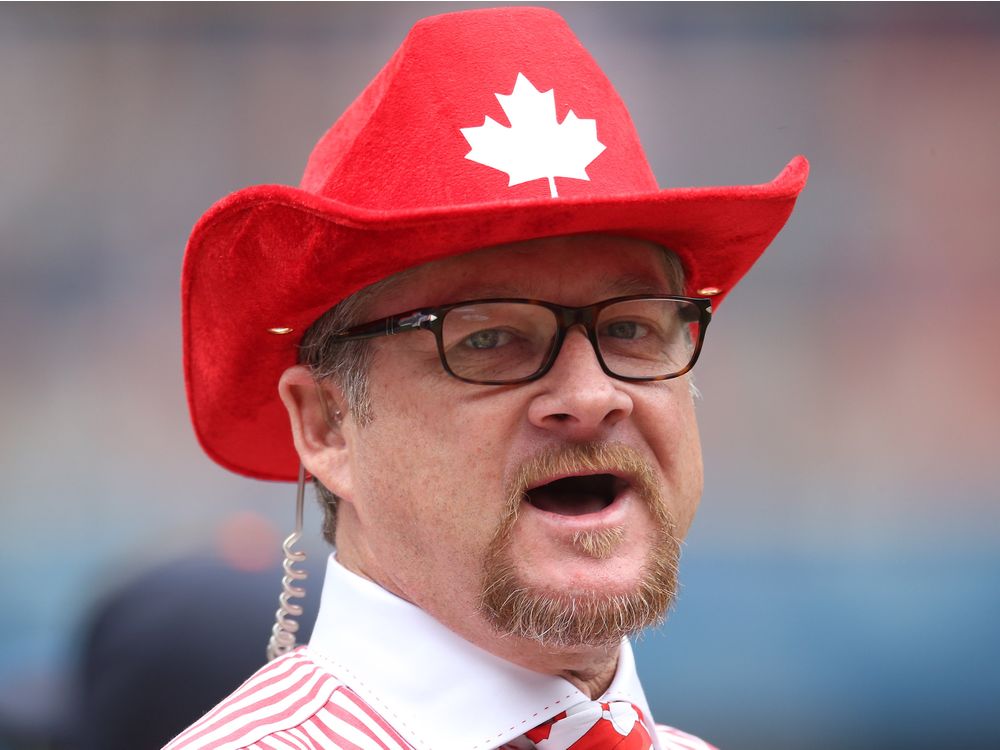It’s surprising that sports’ masculine culture has been late to the reckoning

I have never had anyone tell me that the only reason I am doing this job is because I’m attractive. No one has ever accused me of sleeping with an athlete, and when a reader disagrees with something I wrote, I have not been told to make them a sandwich.
These things happen to female members of the sports media all the time. I cannot stress this enough: All the damn time. It’s just one of the areas in which the sports world skews heavily toward men. Teams are forever apologizing for promotions that assume women don’t understand the rules of the sport, or for jokes that accuse opposing players of being girls. I don’t think there has been a Cindy Crosby controversy yet this season, but give it time. Sometimes the ways in which teams display their gender blind spots can be a lot worse than casually sexist chants. (Hello, Hamilton Tiger-Cats.)
And so, it’s in this environment that Blue Jays analyst Gregg Zaun is dismissed by team owner Rogers on Thursday over alleged “inappropriate behaviour and comments” toward female colleagues, and it’s this environment that causes many to respond with: you don’t say. In this particular moment in time, when powerful men in the entertainment and media industries are being revealed to have been serial sexual harrassers, it has felt inevitable that the dominoes would eventually fall in sports media. How could this industry, which still has an old-boys-club mentality that must at least rival that of Hollywood, not be harbouring some of the same types that have been exposed in film and television?
(While the pattern in most of these recent cases has been an admission of bad behaviour and a promise to improve, Zaun had not responded to his dismissal as of Friday morning. Rogers cited complaints from “multiple” employees this week, but Zaun has admitted nothing.)
Certainly, the power imbalances that create an environment ripe for “inappropriate behvaiour toward female employees” exist in sports media, and they are there even for those who do not work in the industry to plainly see. Men hold an overwhelming proportion of the jobs, and in positions of power and influence the disparity is even more stark. The big jobs — network executive, play-by-play announcer, colour analyst, talk-radio host, print columnist — are almost exclusively the domain of men. Some of that is changing, but the pace is not exactly quick. Beth Mowins did the play-by-play on a Monday Night Football game in September, and she was the first woman to call an NFL game in 30 years and the first to ever do it on a nationally-televised game. There are other examples of women recently getting those kinds of roles — Doris Burke in the NBA, Jessica Mendoza in MLB and occasionally Cassie Campbell in the NHL — but they are extreme outliers. It’s remarkable when you stop to think about it: there is no physical component to calling a football game, the job does not require previous playing experience and yet, today, women are still making history just by doing the job. They are scientists and doctors and judges and heads of state, but a woman in the broadcast booth? Crazy talk.
It’s not hard to imagine how a woman might end up on the wrong end of an unwanted advance in that dude-centric world.
And yet, as much as it’s true that the culture of sports, and by extension of sports media, is a place that can be toxic for women, it is worth pointing out here that it is not just a sports thing. There are undoubtedly many men working in sports media today who are reconsidering things they have said and done to female colleagues and who are wondering if they will be next to be fired. But I think that’s true of many other professions, too. The lesson of the weeks that have unfolded since that first New York Times story on Harvey Weinstein is that poor treatment of women is much more than a locker-room talk problem. News anchors, festival directors, comedians, film producers, actors, elected officials, case after case of men behavingly badly and who went unpunished for it.
So, yes, pro sports has a gender problem. But it’s not just that environment, the one with cheerleaders and ice girls and go-back-to-the-kitchen attitudes that has fostered the behaviour for which so many high-profile men are losing their jobs today. It’s everywhere. If you had asked me six months ago to pick an industry where improper behaviour toward women was likely to exist, I would have quickly pointed to my own.
But while the Zaun case could prove to be the first of many, so far sports media has lagged behind the scandals exposed in many other lines of work. Women can be treated just as poorly by their male colleagues, we have learned, even in industries where they aren’t routinely objectified.
It is a depressing realization.





